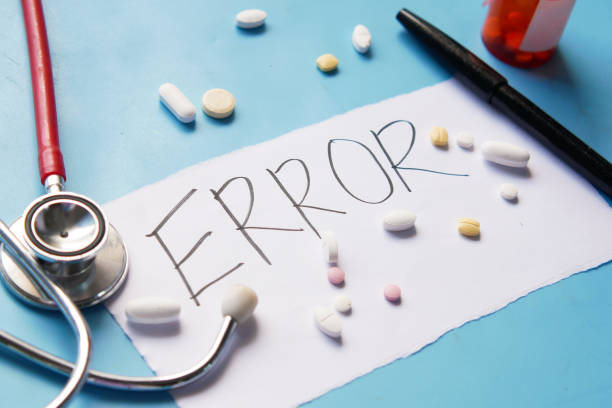Inside: Independent pharmacies need to earn revenue in new ways. Attract more patients by offering the profitable pharmacy services they want and need.
Independent community pharmacies today have more freedom than ever before.
You have opportunities to use your skills to earn revenue in new ways. And to attract more patients by offering the profitable pharmacy services they want and need.
But sometimes it’s difficult to know what services will work best for your business. Should you offer pharmacogenomics? Or is that too advanced? Do you have enough patients to offer specialty medications? Would patients use a diabetes care program?
We’ve curated a selection of profitable pharmacy services to offer. Find out which of these services best meet your patients’ needs and which ones fit with your pharmacy’s skills.
Vaccines and immunizations
Retail giants Walgreens and CVS aggressively market their vaccines for a reason. In 2012, Walgreens reported a 6 percent increase in sales in one year simply from an increase in flu shots administered.
When new patients come in for an immunization, you can sell them other products and services they may need. And, you may earn a new, loyal customer, too.
Almost every patient, regardless of age, gender, or health status, can get an influenza vaccine. That means a lot of potential traffic to your pharmacy. And the universal need for flu shots makes it one of those profitable pharmacy services that will fit with an independent community pharmacy regardless of location or patient base.
Currently, 74 percent of independent community pharmacies offer immunizations, according to the 2017 NCPA Digest. Is your pharmacy one of them?
How to Make Immunizations a Pharmacy Profit Center
Discover how to make immunizations a major source of profit for your business. Learn proven strategies and insights from pharmacy owners who’ve turned their pharmacies into immunization destinations, including 20 practical tips to reap routine profits from your program. Read the story
Point-of-care testing
Many independent pharmacies have started offering point-of-care tests that used to only be provided at physician’s offices or urgent care clinics. Some are offering upwards of a thousand tests per year. Like with immunizations, as patients become more comfortable with pharmacists performing these tests, demand for them will continue to rise.
Patients pay for these tests with cash, and with your accessibility and convenience, you’re able to charge at least the amount of a typical physician copay. The costs for the testing devices and the test strips are relatively low, which means the margins are high.
The most common and most popular point-of-care tests are influenza and strep A. But there are several other options as well:
- Lipids
- Hemoglobin A1c
- Hepatitis C
- HIV
- Lab tests
- Pharmacogenetics
Long-term care
Long-term care has proved to be an incredible opportunity for independent pharmacy profits. First and foremost, there are no DIR fees. This benefit alone makes long-term care a reliable way to stay competitive. ″When you start seeing those DIR fees go away, it makes it all worthwhile, ” said Eric Abramowitz, owner of Eric’s Rx Shoppe in Horsham, Pennsylvania.
According to some estimates, nearly 12 million people over the age of 65 will need LTC services by 2020. These patients suffer from multiple comorbidities, taking 12 prescriptions per month, 71 percent of which are brands, according to a report by McKesson.
Gross margins average 30 to 40 percent. According to the report, “With the average facility housing 100 residents, with each resident taking approximately 12 prescriptions per day, and with gross margins of 30% or even more, LTC pharmacy can represent a significant, attractive, and growing opportunity.”
Bill Popomaronis, vice president of professional affairs at the NCPA, said, “Once you reach 100 residents, that’s worth about $500,000 in additional business. That number is based on the number of prescriptions that a particular patient might use and other factors, but I believe it to be a conservative number.”
Pet care
People treat their pets like family. Americans spent $66 billion on their pets in 2016.
Catering to your patients’ furry friends can boost your pharmacy’s bottom line.
Types of pet services you can provide:
- Compounding (i.e. treats, capsules, creams, suspensions, flavoring)
- Specialty medications
- Vitamins and supplements
- Accessories (i.e. pill pockets, grooming items, leashes, outfits, toys)
- High-end brands
- Specialty foods, including hypoallergenic products
- Source of referral for pet sitting services
Transitions of care
Most patients discharged from the hospital for acute conditions or chronic care situations need prescription medication and management.
Independent community pharmacists can provide medication counseling at discharge. They can also provide compliance packaging and follow-up contact over the next few weeks.
If you meet patients and care for them as they transition, you’ll earn their loyalty.
And selling those services can translate into selling more supplementary products. This extra revenue makes transitions of care a profitable service for many pharmacies.
 These Are the Most Important Pharmacy Metrics to Measure
These Are the Most Important Pharmacy Metrics to Measure
This white paper includes 30+ formulas to calculate the most important metrics for independent pharmacies. You’ll learn to think like a retailer, discover the methods to track and measure meaningful pharmacy metrics, and learn ways to use pharmacy metrics to get insight into business performance.
Specialty pharmacy
Patients need specialty medications to treat long-term chronic conditions. Often those needs provide years of high-dollar revenue for pharmacies.
Offering specialty pharmacy services is one of the most up-and-coming profitable pharmacy services to consider.
One year of treatment with a specialty drug can exceed $100,000. In 2015, specialty drugs accounted for about 38 percent of total drug costs even though they only made up 1 percent of prescriptions dispensed.
In addition to specialty medications, your pharmacy can provide medication adherence services and personal consultations for better care.
Hospice care
Hospice patients require high-cost, high-maintenance medications.
And independent community pharmacies can provide much-needed medication management services for hospice organizations.
Boost your profits by partnering with hospice to provide:
- Patient-specific monitoring for drug therapy outcomes
- Recommending alternative drug products and dosage forms
- Minimizing duplicative and interacting medications
- Compounding medications extemporaneously
- Improving drug storage and transportation
Compounding
Major drug manufacturers can’t tailor medications to individual patients, but you can at your independent pharmacy. By adding compounding, you can accommodate patients who need their prescription as a liquid instead of a pill, are allergic to a certain ingredient, or need to take a non-standard dosage.
In addition to allowing you to tap into a market that is underserved by the larger pharmaceutical industry, compounding services can boost your profits. An NCPA survey says that half of compounded drugs are paid for with cash, saving you from third-party pains.
Pharmacogenomics
Pharmacogenomic testing can add a unique source of revenue to your pharmacy.
Most pharmacies don’t offer it yet, which means this service can set your pharmacy apart.
Pharmacogenomics could easily earn your pharmacy $8,500 per month, with room to grow.
And the lab tests can provide additional insights into your patient’s drug therapy, which may pinpoint a need for more prescriptions or supplements.
Lab testing
You already know how lucrative flu shots are.
Get this. The market size for lab tests is 58 times larger than the market for flu shots in the U.S.. Approximately seven billion lab tests are conducted annually.
That’s a lot of revenue for your pharmacy to scoop up.
Consider using lab tests to:
- Improve medication compliance and effectiveness and enhance patient safety
- Screen for vitamin and nutritional deficiencies
- Provide a compressive wellness screening program
- Monitor the therapeutic blood levels of drugs in patients
A Member-Owned Company Serving Independent Pharmacies
PBA Health is dedicated to helping independent pharmacies reach their full potential on the buy-side of their business. Founded and run by pharmacists, PBA Health serves independent pharmacies with group purchasing services, wholesaler contract negotiations, proprietary purchasing tools, and more.
An HDA member, PBA Health operates its own NABP-accredited warehouse with more than 6,000 SKUs, including brands, generics, narcotics CII-CV, cold-storage products, and over-the-counter (OTC) products — offering the lowest prices in the secondary market.



 These Are the Most Important Pharmacy Metrics to Measure
These Are the Most Important Pharmacy Metrics to Measure









